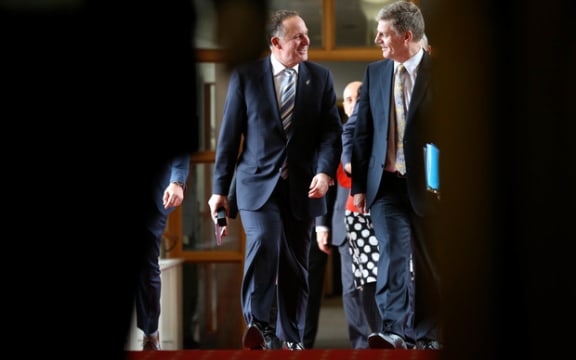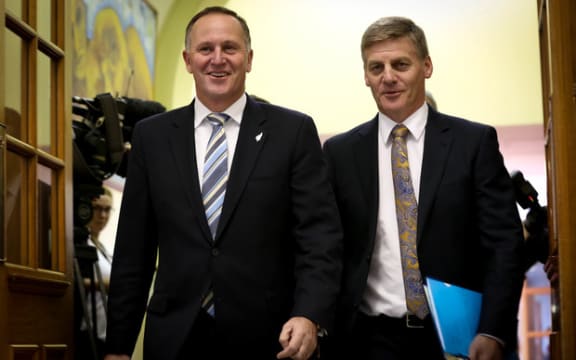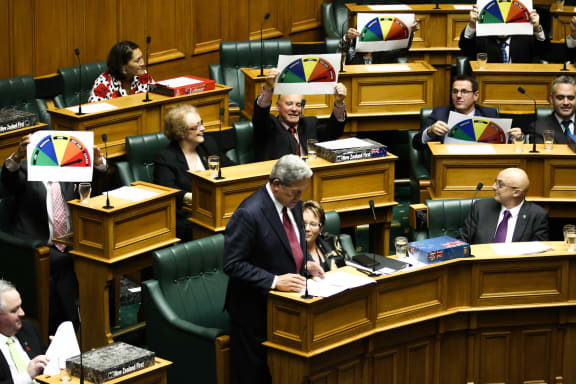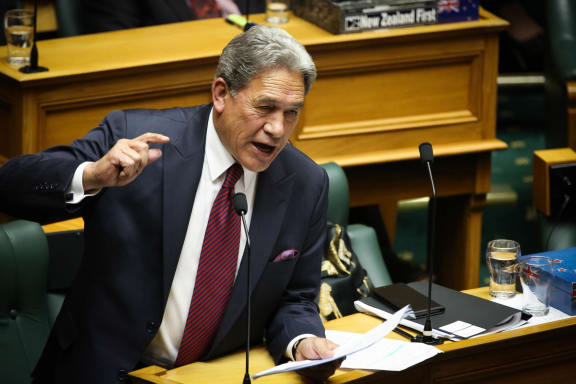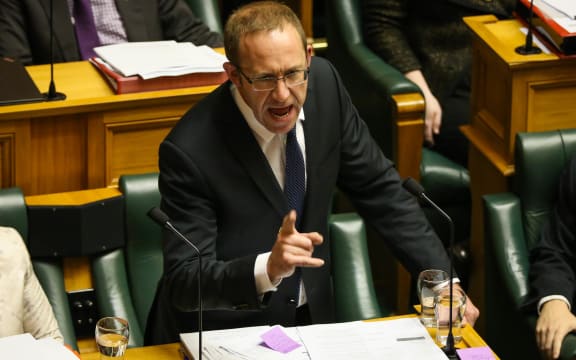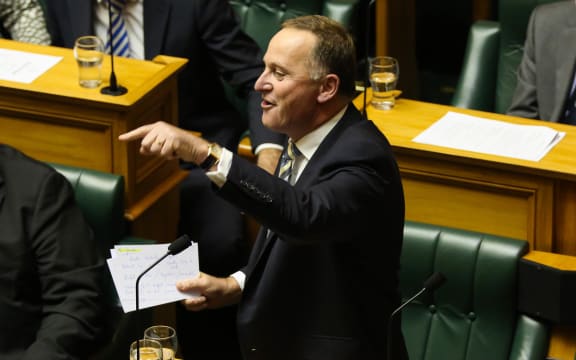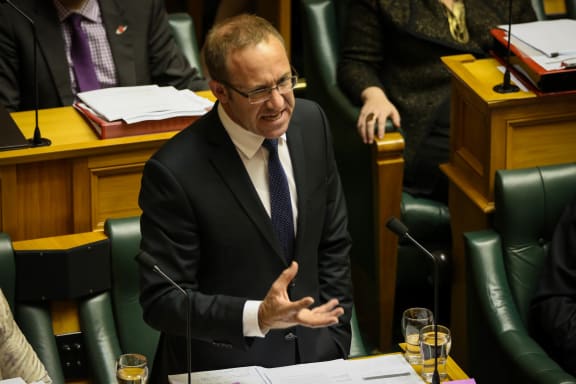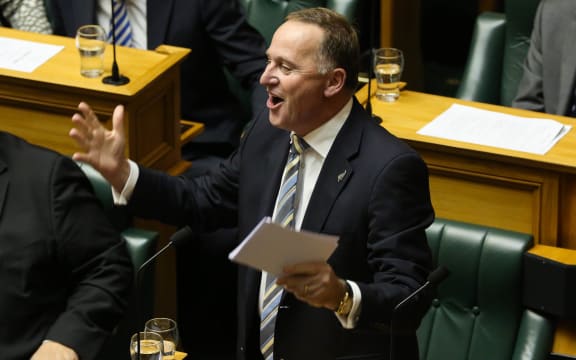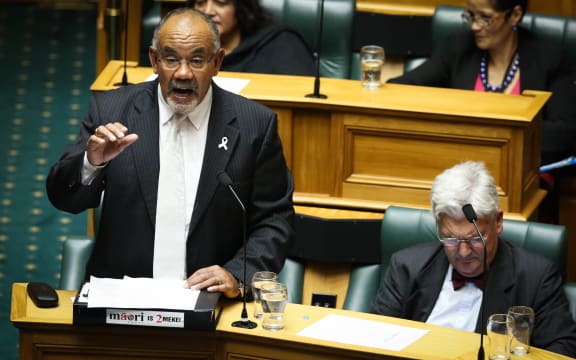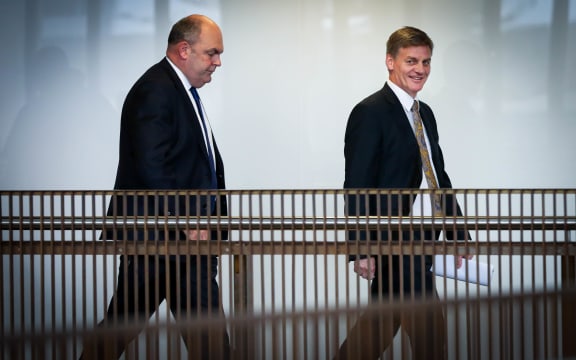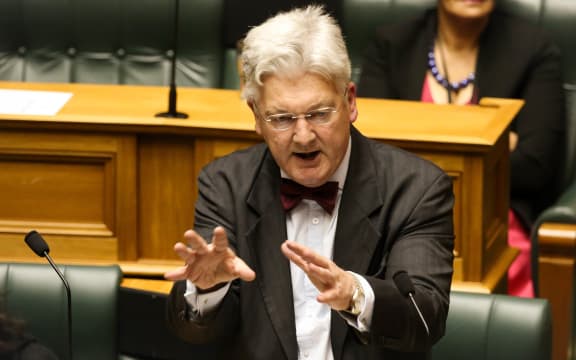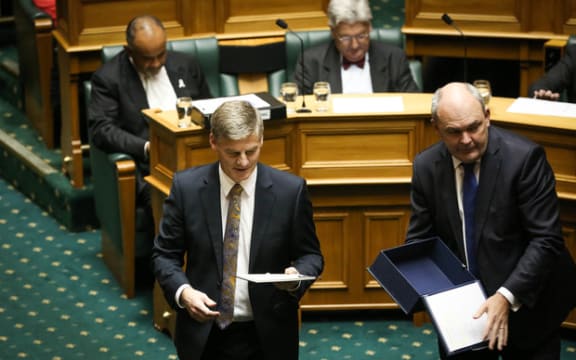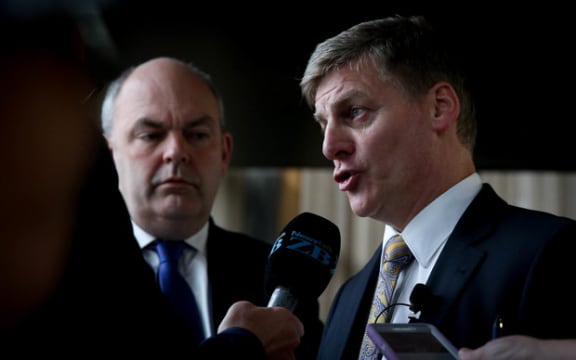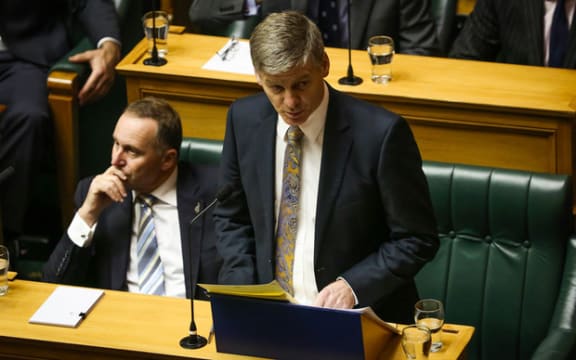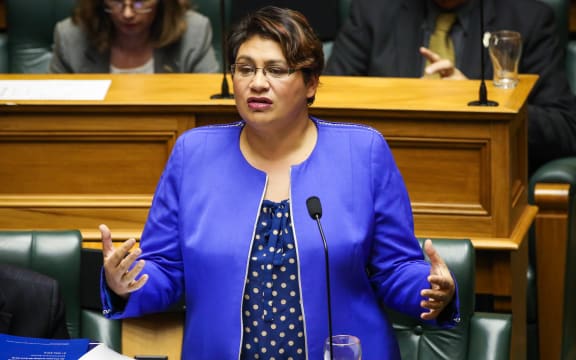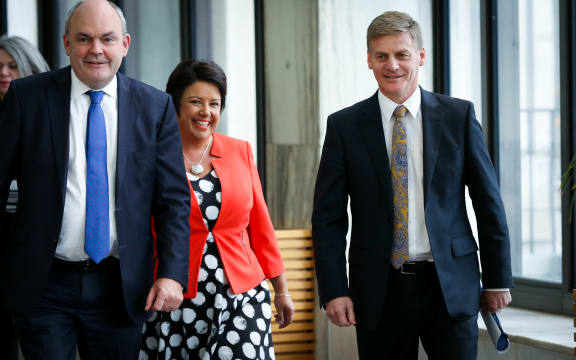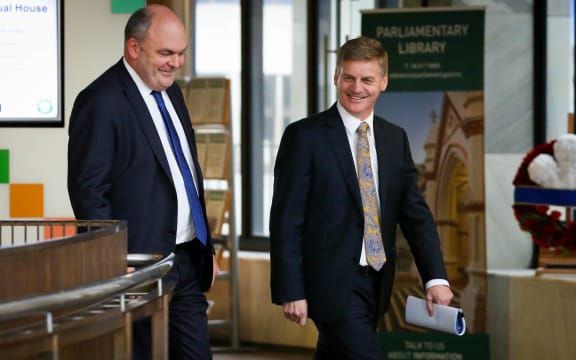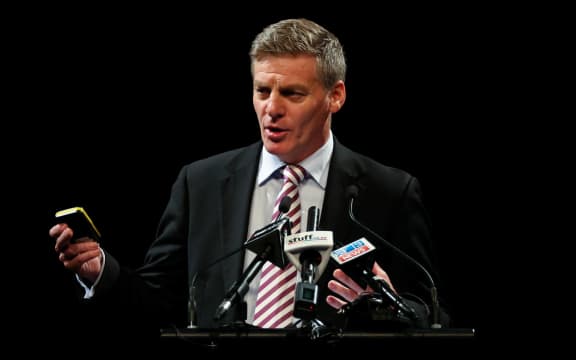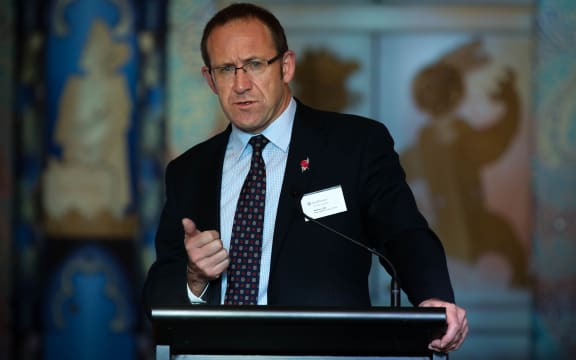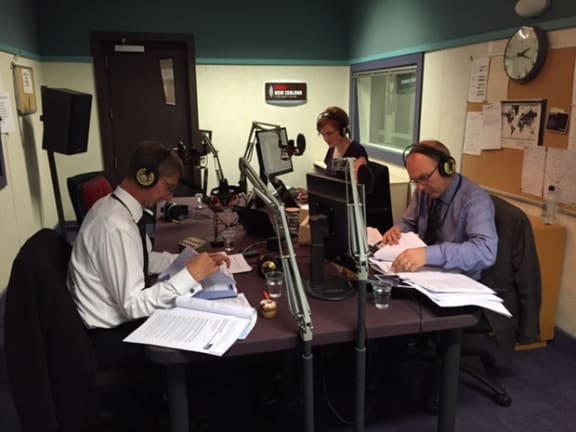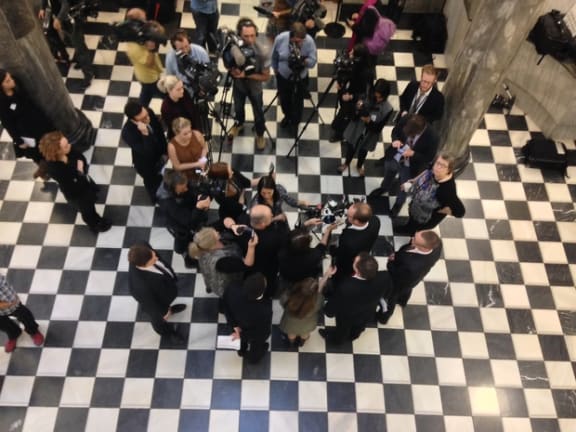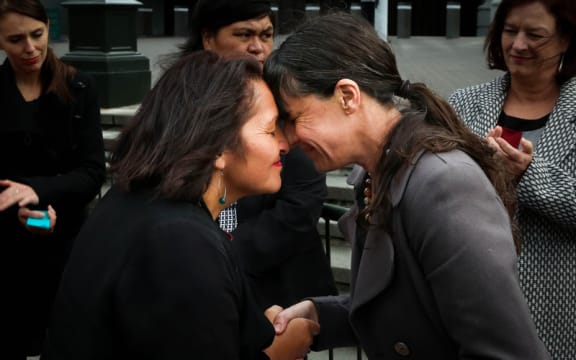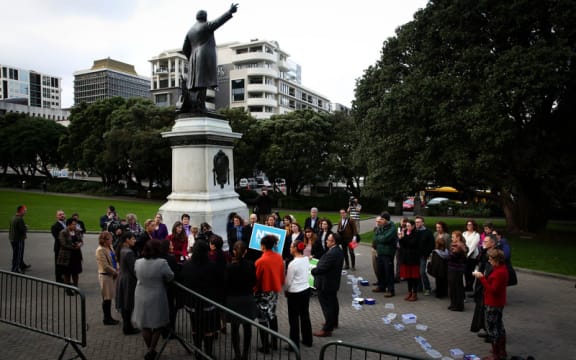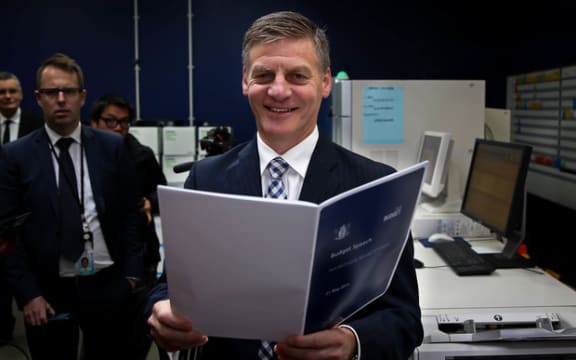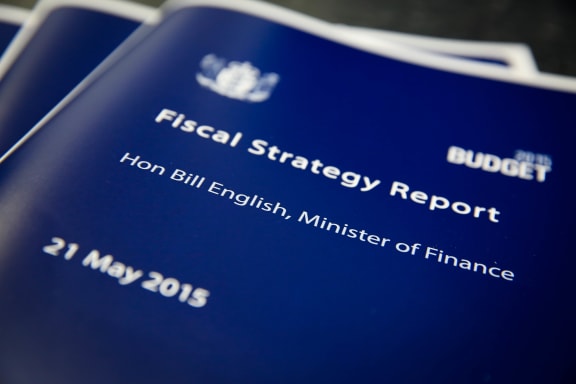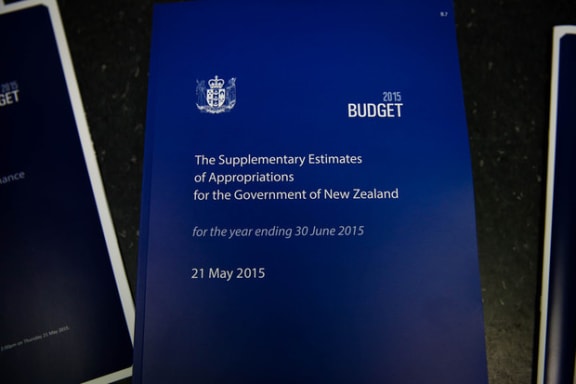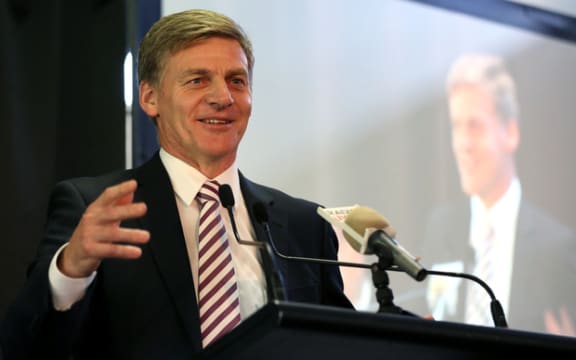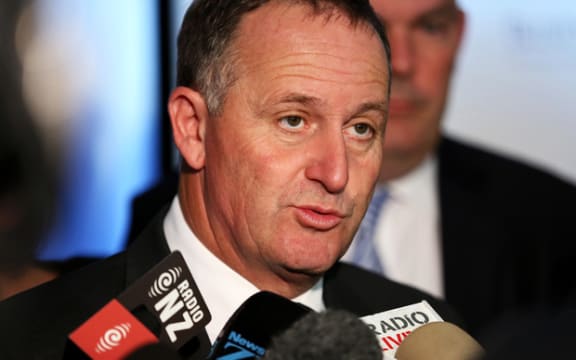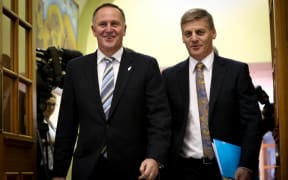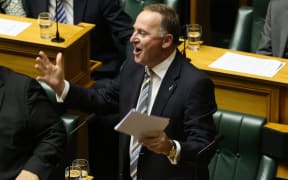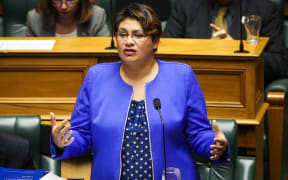A package aimed at alleviating child poverty is at the heart of the Budget unveiled today, which includes an extra $25 a week, after tax, for beneficiary families with children.
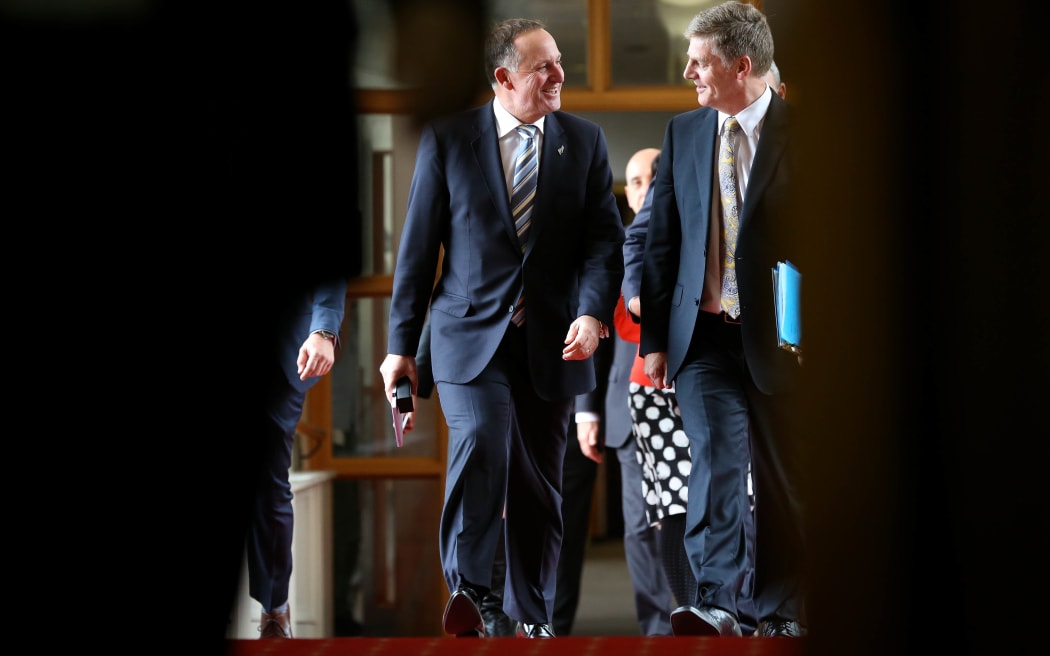
Prime Minister John Key and Finance Minister Bill English on the bridge-run to the debating chamber at Parliament. Photo: RNZ / Alexander Robertson
Key points:
* Beneficiary families will receive an extra $25 a week, after tax, from April 2016 - the centrepiece of a $240 million a year 'hardship reduction' package.
* Tougher requirements for sole parents on a benefit, including having to be available for work once their youngest child turns three, at the moment it's from when youngest child turns five.
* Low income families who are not on the benefit also get an increase in Working for Families payments, along with more support for childcare.
* $1000 KiwiSaver kickstart payment gone as of 2pm today.
* New Border Clearance Levy from the start of next year - will be about $16 for arriving passengers and about $6 for departing passengers.
* $684 million deficit forecast for 2014/2015, moving to $176 million surplus in 2015/2016.
Read more stories on Budget 2015
The child poverty measure, as well as an increase to childcare subsidies rising from $4 to $5, will come into effect from 1 April next year.
It is the first time since 1972 rates have been increased outside of annual adjustments for inflation.
Low income families receiving Working for Families will also get higher payments through the tax credit from next April.
The whole package will cost $790 million over four years, or $240 million a year once fully implemented.
Prime Minister John Key said lifting benefit and Working for Families payments would make a real difference by allowing people to better provide for their children.
"Two-thirds of children in more severe material hardship have a parent on a benefit, with nine out of 10 of those being sole parents, so it's important to focus attention on this group of families."
There are also tougher work obligations for sole parents on a benefit, or the partners of beneficiaries, including now having to be available for work when their youngest child turns three.
The Budget also contains a significant change to the KiwiSaver scheme: the $1000 kickstart payment was scrapped at 2pm today. The Government will still match savings up to $521 a year.
Finance Minister Bill English said the scheme had created considerable costs for taxpayers, and removing the kick start payment would save the Government more than $500 million during the next four years.
The Budget is forecasting a $684 million deficit for 2014/2015, moving to a surplus of $176 million in 2015/2016, growing to $3.6 billion in 2018/2019. Economic growth is forecast to grow by an average 2.8 percent during the next four years. Average wages are expected to rise by $7000 to $63,000 a year by mid-2019, and unemployment is forecast to fall below 5 percent next year.
People arriving in and leaving New Zealand will pay a new Border Clearance Levy from 1 January next year; arriving passengers will pay about $16 and those departing about $6. This will raise about $100 million a year and will help fund an extra $24.9 million over four years for new biosecurity measures at the border, and $4.7 million over four years for extra Customs officers.
The Budget also scraps $1.7 billion of penalties owed for child support.
Revenue Minister Todd McClay said child support debt was currently $3.2 billion and rising, and only about $700 million of that was actual child support.
He said scrapping the $1.7 billion of penalties was to encourage parents to pay what they actually owed.
As expected, the Government will set aside $52.2 million as a capital contingency fund for housing development on Crown-owned land in Auckland. It has also announced $35 million for operational spending in social housing.
Mr Key has already announced a new test for capital gains, excluding the family home, on houses bought and sold within two years. Overseas buyers also face new requirements, including having a New Zealand Inland Revenue Department number and bank account.
Read more stories on Budget 2015
Changes to benefits
Families on the benefit will receive $25 extra a week from next April and, after allowing for higher accommodation costs, the Government estimates parents on a benefit will receive an average of $23 extra a week.
Because those families will be receiving more, those in state housing will pay an extra $6.25 a week, because their rent is set at 25 percent of their income, and those in private rentals will receive $4 less in their accommodation allowance.
About 110,000 families, with a total of 190,000 children, will get the extra payment.
The Government subsidy available for childcare will increase from $4 an hour to $5 an hour for up to 50 hours a week, per child.
However, there will be tougher work obligations, including:
- Beneficiaries receiving Sole Party Support will have to reapply for their benefit each year.
- Those on Sole Parent Support, or people whose partner is on a Jobseeker Benefit will have to be available for work when their youngest child turns three; at the moment it's when the youngest child turns five.
- All beneficiaries with part-time work obligations will now be expected to find work for an average of 20 hours a week, up from the current requirement of 15 hours a week.
Changes to Working for Families
The base rate of the In-Work tax Credit will increase from $60 to $72.50 a week - an increase of $12.50 a week, or about 21 percent.
This means families earning $36,350 or less a year will get $12.50 extra a week; very low income families will get $24.50 extra.
Those earning more than $36,350 will get less than $12.50 a week, depending on their family income.
Families earning more than $88,000 will receive slightly less.
About 200,000 working families, with a total of about 380,000 children, will be affected.
Health
The big winner for health in this Budget is for hospice care, with $76 million of new money to be spent on palliative care for the terminally ill over four years.
The Government has already announced $98 million over four years for more elective surgery, and there is new money to continue a bowel cancer screening programme in Auckland. However, there is no funding to take that scheme nationwide.
Overall, year-on-year, the health sector budget has increased by $311 million. Total health spending is now $15.9 billion.
Education
In this Budget, most tertiary institutions and all early childhood services get no extra money, while schools get an operations funding increase of just 1 percent. The biggest area of spending is the previously announced $243 million during four years for seven new schools, and expansion at other schools.
Spending on the Ongoing Resourcing Scheme for the most disabled children increases by $39.5 million during four years, enabling 500 more students to access the scheme in that time.
Total spending on schools and early childhood education rises from $10.3 billion to $10.8 billion in the next financial year. Tertiary education spending barely increase, going from $3.017 billion to $3.060 billion.
Other Budget measures
* An additional $107.8 million in operational funding for Canterbury's earthquake recovery, taking the Government's total contribution to $16.5 billion. The new money will go towards land clearances to make way for Anchor Projects and the preparation of land before construction begins.
* The New Zealand Police will receive $164 million over four years to boost frontline policing and crime prevention, the Serious Fraud Office gets an $8 million funding boost, and there is $40 million for Justice and Courts initiatives.
* The Security Intelligence Service and Government Communications Security Bureau each get an extra $20 million a year in funding.
* $49.8 million will go towards extra funding for Whanau Ora navigators to work directly with families.
* $37.2 million to provide greater national direction and support to councils as they implement the Government's resource management and freshwater reforms.
* $264 million to help the New Zealand Defence Force to meet its domestic and international obligations. This includes $46.5 million for new operating funding, as well as $106 million for new equipment.
* Out of the funds created from the proceeds of the partial asset sales: Up to $210 million will go to to extending the roll-out of Ultra-Fast Broadband; up to $100 million for Lincoln University to rebuild its science facilities; up to $210 million for KiwiRail this financial year and the promise of a further $190 million in 2016; up to $52 million in contingency funding to replace Waitangi Wharf on the Chatham Islands; $40 million for Te Papa to invest in capital works on its Wellington buildings; $36 million to support the Children's Action Plan; and $23 million extra for Child Youth and Family.
